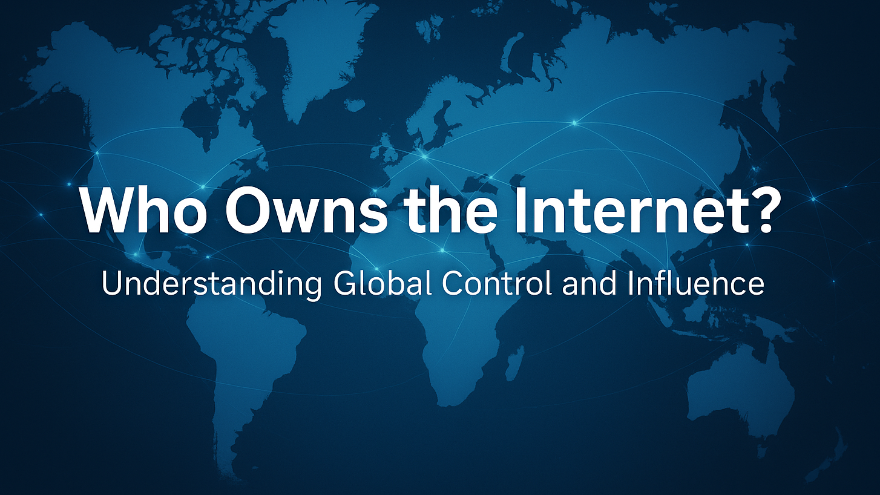The internet has no single owner, but some countries and organizations play bigger roles in its governance. Explore how the internet is managed globally, who holds influence, and why no one truly owns it.

The internet has become an essential part of our daily lives — powering communication, commerce, education, entertainment, and more. But despite its global presence, many people still wonder: Who owns the internet? Is it controlled by any specific country or organization?
The short answer is: No one owns the internet. It is a decentralized global network with shared control and cooperation between countries, companies, and international organizations. However, certain countries and institutions have more influence over how the internet operates.
In this article, we explore how the internet is governed, who holds influence, and how different countries shape the global digital landscape.
The internet is not a single entity or a centralized system. It is a network of networks — millions of interconnected servers, devices, and data centers that span across the globe. These networks are operated by governments, private companies, academic institutions, and individuals.
This decentralized design means no single person, company, or country can truly "own" the internet. Instead, its functionality depends on voluntary cooperation, international agreements, and technical standards.
While no country owns the internet, the United States has historically played the most significant role in its development:
.com, .org) and IP address allocation — is based in California, USA. As a result, the U.S. still holds considerable technical and economic influence over the global internet.
While the U.S. was the origin point of the internet, other nations have become key players in shaping how the internet works and is governed:
India, Japan, South Korea, and Brazil are becoming increasingly influential due to their large user bases, tech industries, and participation in international internet governance discussions.
Although countries have influence, the operation of the internet relies heavily on non-governmental organizations and collaborative institutions that set standards, manage domain names, and coordinate infrastructure.
Here are some of the most important internet governance bodies:
| Organization | Role |
|---|---|
| ICANN (Internet Corporation for Assigned Names and Numbers) | Manages domain names, IP address allocation, and root DNS servers. |
| IANA (Internet Assigned Numbers Authority) | Operated by ICANN, responsible for global IP address allocation and protocol parameters. |
| IETF (Internet Engineering Task Force) | Develops technical standards and protocols (like TCP/IP, HTTP). |
| W3C (World Wide Web Consortium) | Develops web standards such as HTML, CSS, and XML. |
| ITU (International Telecommunication Union) | A UN agency that coordinates global telecom and some internet-related policies. |
| Regional Internet Registries (RIRs) | Allocate IP address blocks in specific geographic regions (e.g., ARIN for North America, RIPE for Europe). |
To sum it all up:
| Question | Answer |
|---|---|
| Who owns the internet? | No one. The internet is decentralized and globally shared. |
| Which country controls it the most? | The United States has the most historical and infrastructural influence. |
| Who governs the internet? | A mix of international organizations, governments, companies, and volunteers. |
| Can a country disconnect from the global internet? | Technically yes — countries like China and Russia have taken steps toward isolated internet infrastructure. |
The internet is one of the greatest examples of international cooperation and shared innovation. While no country owns it, the way it is used and governed is shaped by complex dynamics between nations, corporations, and civil society.
As debates around digital privacy, cybersecurity, censorship, and access continue, the future of the internet will depend on how well the global community can balance national interests with the shared goal of an open, secure, and inclusive internet for all.